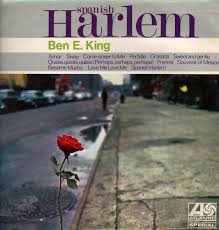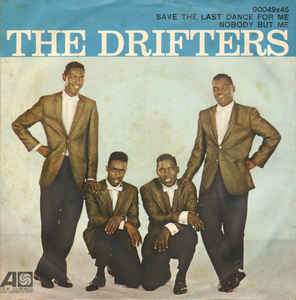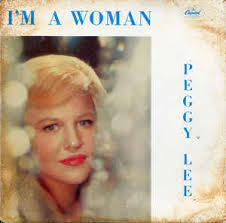
"Jailhouse Rock" is a rock and roll song recorded by American singer Elvis Presley for the film of the same name. It was written by Jerry Leiber and Mike Stoller. RCA Victor released the song on a 45 rpm single on September 24, 1957, as the first single from the film's soundtrack EP. It reached the top of the charts in the U.S. and the top 10 in several other countries. The song has been recognized by the Grammy Hall of Fame, the American Film Institute, and others.

"Spanish Harlem" is a song recorded by Ben E. King in 1960 for Atco Records. It was written by Jerry Leiber and Phil Spector and produced by Jerry Leiber and Mike Stoller. "Spanish Harlem" was King's first hit away from The Drifters, peaking at number 15 on Billboard's rhythm and blues and number 10 in pop music chart.
"Love Letters" is a 1945 popular song with lyrics by Edward Heyman and music by Victor Young. The song appeared, without lyrics, in the film of the same name released in October 1945. A vocal version by Dick Haymes, arranged and conducted by Young, was recorded in March 1945 and peaked in popularity in September. "Love Letters" was subsequently nominated for the Academy Award for Best Original Song in 1945, but lost to "It Might as Well Be Spring" from State Fair.
"Young Blood" is a song written by Doc Pomus along with the songwriting team Jerry Leiber and Mike Stoller that first became a hit by The Coasters in 1957.

"Save the Last Dance for Me" is a song written by Doc Pomus and Mort Shuman, first recorded in 1960 by American musical group the Drifters with Ben E. King on lead vocals. It has since been covered by several artists, including Dalida, the DeFranco Family, Emmylou Harris, Dolly Parton, and Michael Bublé.
"It's a Sin to Tell a Lie" is a 1936 popular song written by Billy Mayhew, introduced early that year on records by many dance bands including Dick Robertson on the 78rpm record Champion 40106, and later popularized by Fats Waller on Victor 25342 and re-issued on Victor 20-1595. It was recorded in French by Cajun singer Cléoma Breaux in 1936 or 1937. Four further recordings of the song were made in 1936, namely by Freddy Ellis and His Orchestra (April), Victor Young and His Orchestra (April), Elton Britt (September), Roy Smeck and His Serenaders and Vera Lynn.
"Ruby Baby" is a song written by Jerry Leiber and Mike Stoller. It was originally recorded by the Drifters. Their version was released as a single by Atlantic Records in 1956. It peaked at No. 10 on the US Hot R&B chart.

"Don't" is a song recorded by Elvis Presley and released in 1958. Written and produced by Jerry Leiber and Mike Stoller, it was Presley's eleventh number-one hit in the United States. "Don't" also peaked at number four on the R&B charts. Billboard ranked the ballad as the No. 3 song for 1958.

"There Goes My Baby" is a song written by Ben E. King, Lover Patterson, George Treadwell and produced by Jerry Leiber and Mike Stoller for The Drifters. This was the first single by the second incarnation of the Drifters, who assumed the group name in 1958 after manager George Treadwell fired the remaining members of the original lineup. The Atlantic Records release was Ben E. King's debut recording as the lead singer of the group.

"Love Potion No. 9" is a song written in 1959 by Jerry Leiber and Mike Stoller. It was originally performed by the Clovers, who took it to No.23 on the US as well as R&B charts that year.
"Is That All There Is?", a song written by American songwriting team Jerry Leiber and Mike Stoller during the 1960s, became a hit for American singer Peggy Lee and an award winner from her album of the same title in November 1969. The song was originally performed by Georgia Brown in May 1967 for a television special. It was first recorded by disc jockey Dan Daniel in March 1968, but this was an unauthorized recording that, while played on Daniel's own radio show, went unissued at the songwriters' request. The first authorized recording was by Leslie Uggams in August 1968. Then came the hit Peggy Lee version in August 1969, followed by Guy Lombardo in 1969 and Tony Bennett on 22 December 1969.
"(Now and Then There's) A Fool Such as I" is a popular song written by Bill Trader and published in 1952. Recorded as a single by Hank Snow it peaked at number four on the US country charts early in 1953.

The song "I'm a Woman" was written by famed songwriting duo Jerry Leiber and Mike Stoller, and was first recorded in 1962 by Christine Kittrell.
"I (Who Have Nothing)" (sometimes billed as "I Who Have Nothing") is an English language cover of the Italian song "Uno dei Tanti" (English: "One of Many"), with music by Carlo Donida and lyrics by Giulio "Mogol" Rapetti. The initial version, "Uno dei Tanti", was performed by Joe Sentieri in 1961. The song first recorded in English by Ben E. King in 1963 with new lyrics by Jerry Leiber and Mike Stoller.

"Love Ballad" is a song by R&B/Funk band L.T.D. Jeffrey Osborne is the lead singer.

"She's Not You" is a 1962 song recorded by Elvis Presley and released as a single on RCA Victor.

"Love Me" is a sentimental song composed by Jerry Leiber and Mike Stoller and recorded and popularized by Elvis Presley in 1956.

"T-R-O-U-B-L-E" is a song written by Jerry Chesnut and recorded by Elvis Presley in March 1975. It was released as a single, as the A-side, with the B-side "Mr. Songman", through RCA Victor that was taken from his album Today. It is not to be confused with the Leiber and Stoller song "Trouble", that Presley first recorded in July 1958, and which was subsequently recorded by numerous other artists.
"Funny How Time Slips Away" is a song written by Willie Nelson and first recorded by country singer Billy Walker. Walker's version was issued as a single by Columbia Records in June 1961 and peaked at number 23 on the Hot C&W Sides chart. The song has been featured in several live action films and television shows, such as in the first episode of the second season of AMC’s Better Call Saul and in the 2020 Netflix drama The Devil All the Time.

"I Can't Help It (If I'm Still in Love with You)" is a song written and originally recorded by Hank Williams on MGM Records. It hit number two on the Billboard country singles chart in 1951. In his autobiography, George Jones printed the first six lines of the song and stated, "Its lyrics couldn't be more simple - or profound."












